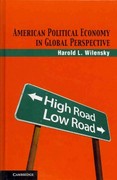Question
1. There are 1200 people born in a community every period. Each is endowed with one good and lives 3 periods. After one period, they
1. There are 1200 people born in a community every period. Each is endowed with one good and lives 3 periods. After one period, they will find out whether they are type 1, in which case they want to consume in period 2, or type 2, in which case they will want to consume in period 3. The probability of being type 1 is 1/4; the probability of being type 2 is 3/4. Two assets are available: storage pays a gross return of 1 after one period; or a good can be turned into "capital" and become 2 goods after 2 periods. If capital is sold after one period, its price will be 1/2 due to the cost incurred by the buyer of verifying that it is genuine.
a. What role can a Bank, which pools all of the 1200 goods from savers in the first period of life, perform? Explain what assets it would hold and why it can make people better off than they would be on their own. How would it work. (Assume it has no costs.)
b. I claim that if a type 2 person expects more than 300 type 2 people to lie, she will lie as well and claim to be a type 1; whereas if she expects fewer than 300 people to lie, she will not lie. Explain why. (Hint: show that if exactly 300 people lie, a type 2 person will be indifferent between lying and not lying.)
c. Suppose each type 2 expects 350 type 2's to lie. How much will each expect to get if they wait? Explain the calculation-don't just write down a formula. Given your answer, what will each type 2 do? How would your answer change if deposits were insured by the government?
Step by Step Solution
There are 3 Steps involved in it
Step: 1

Get Instant Access to Expert-Tailored Solutions
See step-by-step solutions with expert insights and AI powered tools for academic success
Step: 2

Step: 3

Ace Your Homework with AI
Get the answers you need in no time with our AI-driven, step-by-step assistance
Get Started


